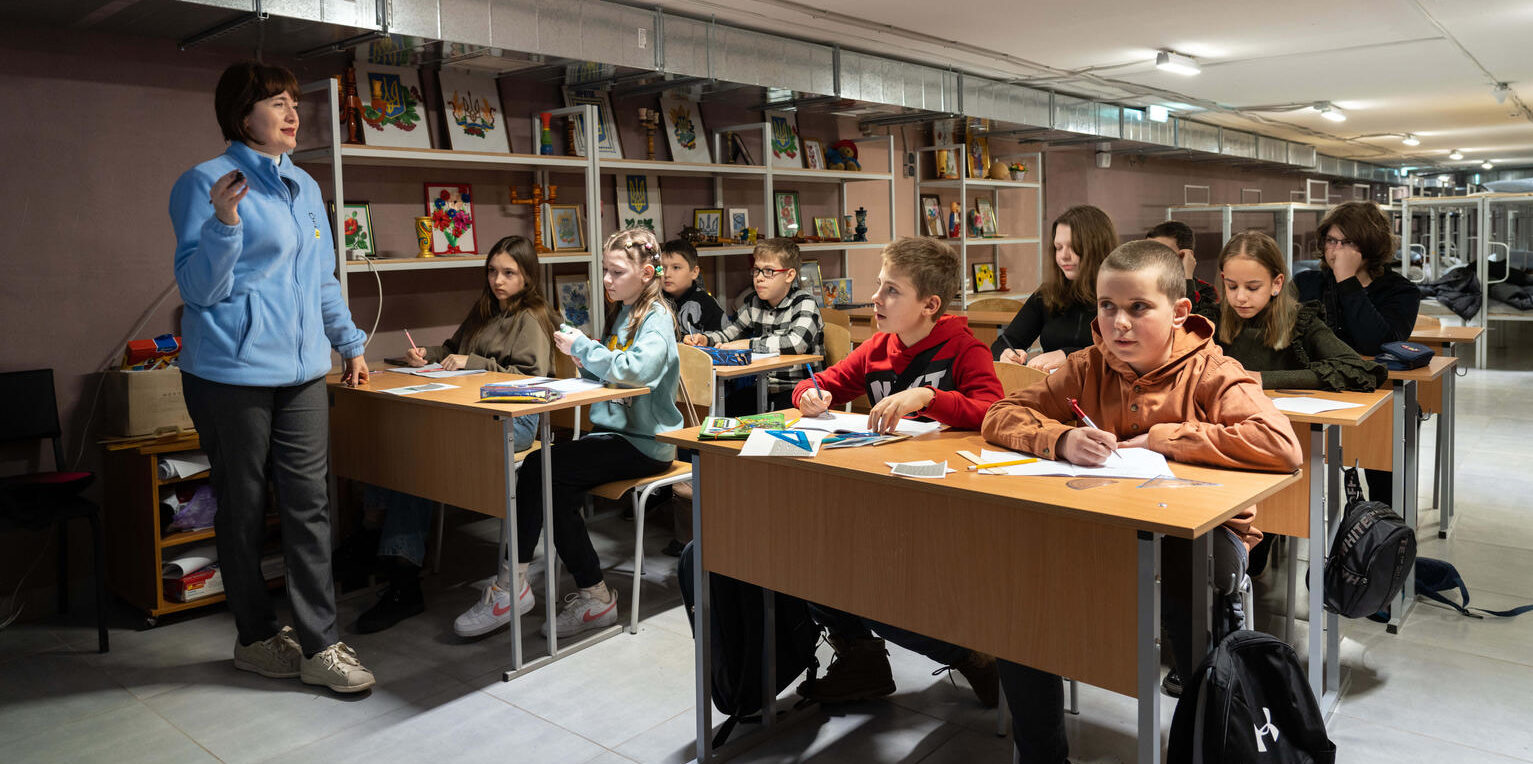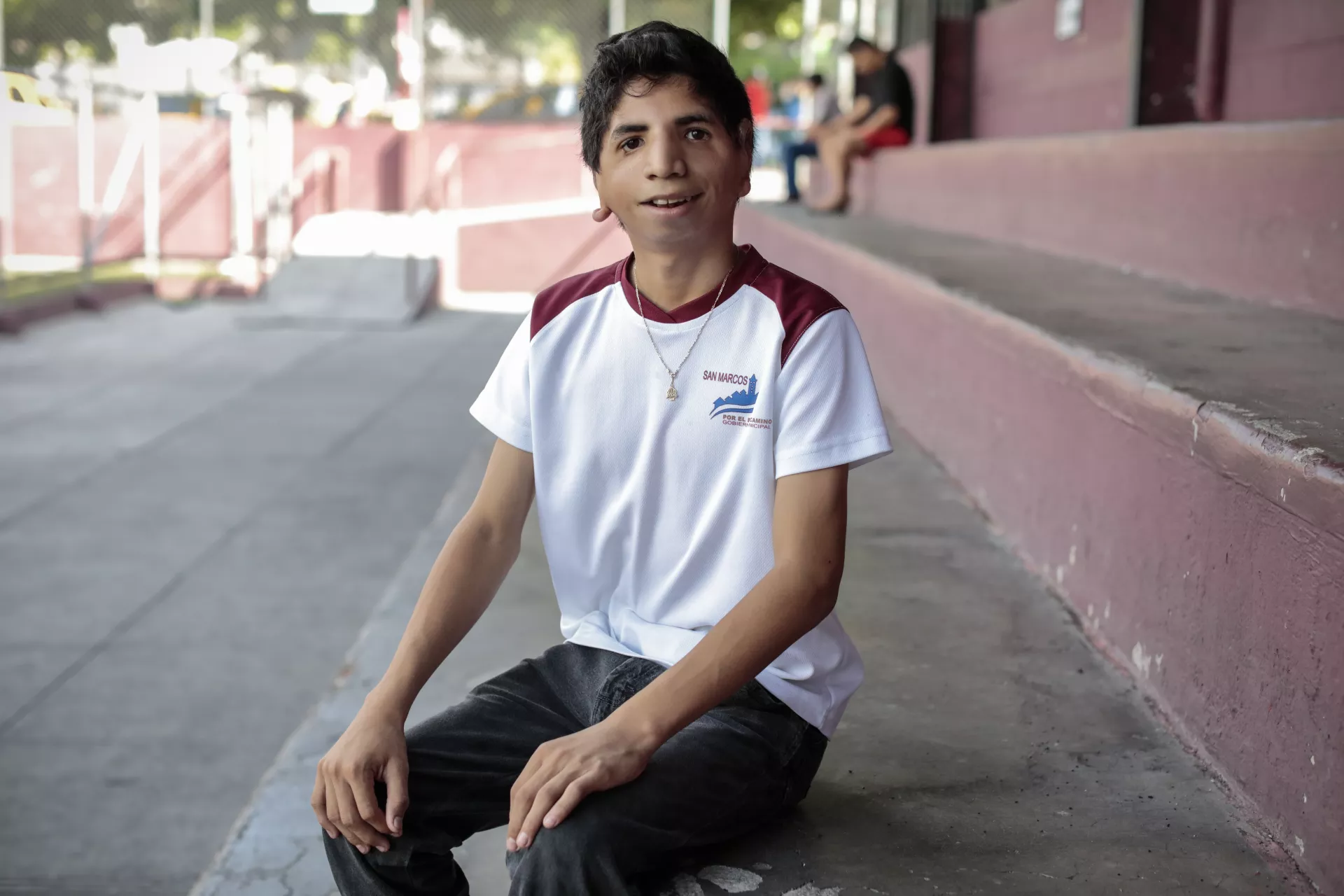Learning for every child
Every child deserves the opportunity to learn, and UNICEF is working tirelessly to make that a reality. From refugee camps to war zones, from rural Africa to crowded cities in Asia and Europe, UNICEF is helping children access education despite their many challenges.
We provide children with essential supplies they need to learn, and ensure they have access to the food, water, and safe shelter that is so crucial to their schooling. And we can only do this thanks to our generous supporters who have enabled 37.7 million children to receive an education in 2023 alone.
A total of 17.7 million of these children were living in emergencies like Gaza, Lebanon, Sudan and Ukraine. Despite wars, diseases, hunger and poverty, our supporters enabled us to reach children in their tents and in their bomb shelters offering hope through learning.
UNICEF is also deeply committed to ensuring that children with disabilities are not left behind. We also offer support to children with physical disabilities and those dealing with psychological trauma, helping them overcome these barriers so they can receive the education they deserve, just like every other child.
Soccer success
Vladimir, 13, lives in El Salvador and has Treacher Collins syndrome, which affects his hearing, speech and ability to move around.
Despite these difficulties, his passion is playing soccer and in sports classes provided with UNICEF’s support he has been able to learn motor skills which have improved his life.
His teacher says Valdmir’s progress has been extraordinary, and he is now more sociable and athletic. His grandmother has noted a change too, thanks to the UNICEF class, saying he communicates better and is more independent.
Innovation in education
Bringing education to vulnerable children is a complex task and comes with many challenges. That’s why UNICEF integrates innovation into our approach to ensure that no child is left behind. What do we mean by “innovation”? It’s about finding creative solutions to overcome barriers and make learning accessible for all.
In remote areas like Sudan, for example, we provide children with solar-powered tablets that teach math lessons, ensuring they can learn despite the lack of resources.
In Greece meanwhile, we are using digital solutions to help refugee children like Huda and Jihad. They were forced to flee Syria in 2018 and struggled to get by in their new school without speaking Greek. But with the help of a digital learning tool, they were able to increase their language skills. “I wish that in Greece I will be very happy,” says Jihad now. “I hope for all people to be well,” Huda adds, smiling.
Flexible funds
UNICEF innovates too through our Global Education Thematic Fund – flexible funds that allow UNICEF to get to the root cause of inequality in education around the world. With these funds from generous donors, UNICEF can improve classroom infrastructure, national curricula, laws, and much more. Working in this ‘big picture’ manner is cost effective, sustainable and scalable, and, crucially, it works.
To name just a few examples, using these funds we were able to teach children in Cambodia about climate change, keep pupils in school in Mali, bring learning kits to children in Cameroon and and set-up temporary learning spaces for children in Yemen forced from their home by conflict.
Schooling beneath the bombs
In a bomb shelter beneath a school in Ukraine, a teacher seeks to reassure youngsters.
“I will come to everyone and explain everything,” she says.
For two years, thousands of children in Ukraine have been unable to attend school full-time due to the ongoing war.
As a result, education has shifted to an online format. However, frequent airstrikes, power outages and shelling have severely disrupted learning. To address this, UNICEF runs a ‘Catching Up’ programme – including lessons held in a bomb shelter.
UNICEF can help these children receive an education, despite the terrible conditions, thanks to our supporters. But as hard as it is to imagine, there are children around the world in even worse circumstances. In Gaza, all schools are either destroyed, badly damaged, or being used as shelters for people forced from their homes.
Many teachers, and sadly many young pupils, have been killed. But UNICEF is managing to support community learning initiatives. For example, Anwar, a teacher, was able to set up 10 tents as makeshift classrooms and educate 720 children.
Even in these most desperate circumstances, UNICEF is there, with our supporters help, providing children an education they need and deserve.

Children around the world need your help to access education


